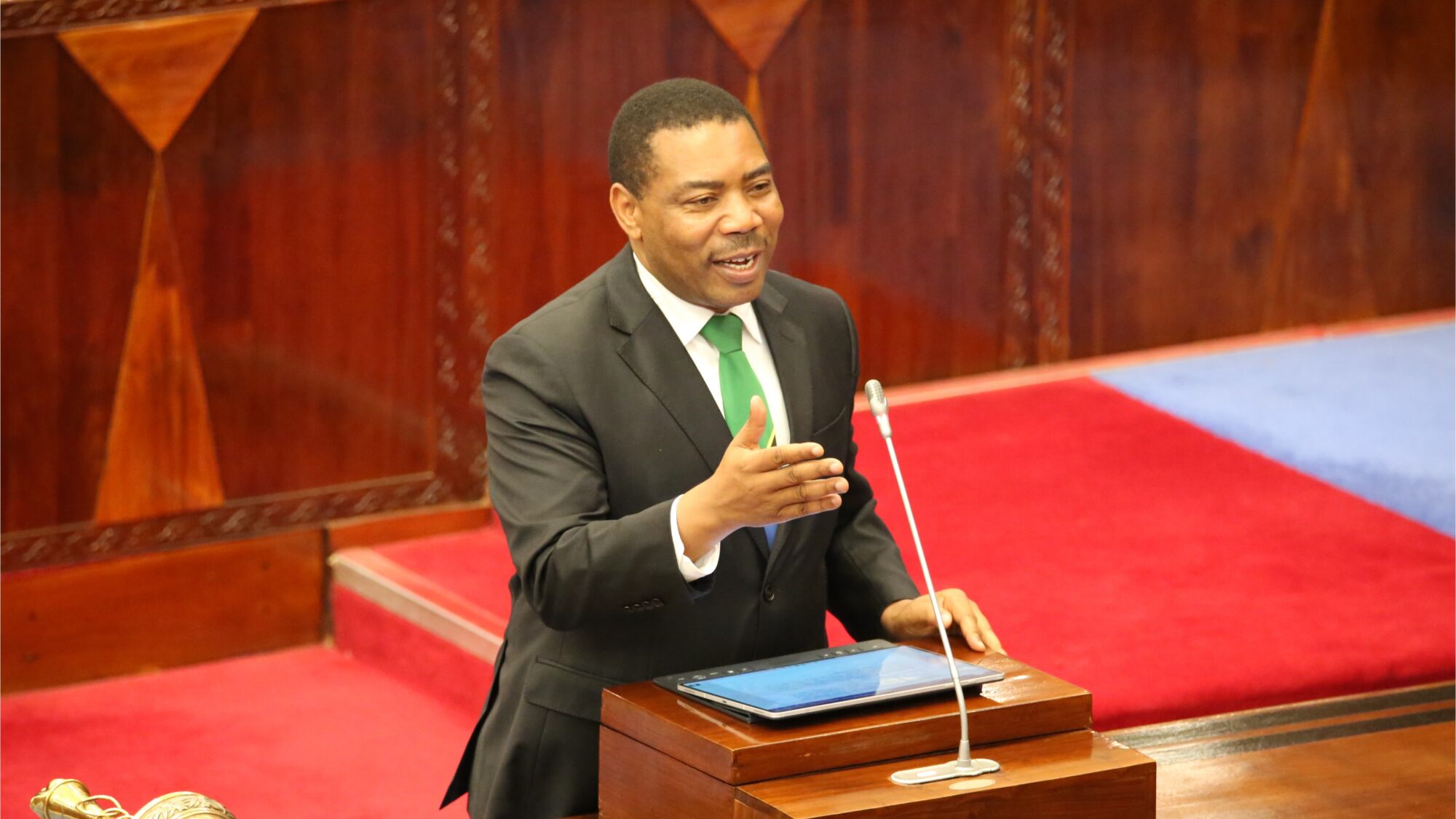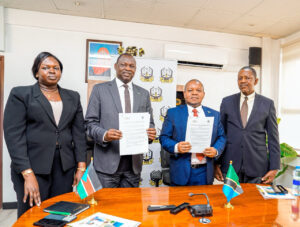By Peter Nyanje
Tanzania’s national debt has reached TSh89.1 trillion as of April 2025, according to a comprehensive budget presentation by Finance Minister Dr. Mwigulu Nchemba. The figure reflects a growing burden – yet one the government insists is being managed with “strategic responsibility” to support ongoing development without compromising long-term sustainability.
During the 2024/25 fiscal year, the government spent TSh10.19 trillion on debt servicing, representing 84.8% of the annual projection. This included TSh6.01 trillion in domestic debt payments—of which TSh2.48 trillion covered interest and TSh3.53 trillion was used for principal repayment—and TSh4.18 trillion in external debt servicing. The latter was split into TSh1.62 trillion in interest and TSh2.56 trillion in principal repayments.
“Our debt is development-focused and carefully structured,” Dr. Nchemba told lawmakers. “We continue to prioritise concessional and semi-concessional borrowing, while strengthening public financial management systems.”

Technological reforms and transparency
To ensure accuracy and transparency, the Ministry has enhanced its debt tracking by upgrading the CS-Meridian system, integrating it with the Central Bank CBS, GSS, and MUSE platforms.
This digital integration allows the government to report debt in real time in Tanzanian shillings, improving budget forecasting and risk management.
Furthermore, the integration of 11 government financial systems has made it easier for public institutions to process transactions and monitor expenditures.
New modules for contract payments, asset disposal and expenditure tracking are now operational – part of a wider strategy to reduce corruption and leakages.
Economic outlook and growth indicators
Tanzania’s economy remains resilient. The country recorded a GDP growth rate of 5.5% in 2024, up from 5.1% in 2023, driven by investment in infrastructure, agriculture, energy and tourism.
The average inflation rate held steady at 3.1%, while foreign reserves stood at $5.69 billion, enough to cover four months of imports, reflecting prudent monetary policy by the Bank of Tanzania.
On the fiscal front, domestic revenue collection reached TSh37.91 trillion by April 2025, approximately 84.1% of the annual target, with the Tanzania Revenue Authority (TRA) contributing TSh24.45 trillion.
This performance was buoyed by improved tax systems such as TANCIS and IDRAS, which have enhanced transparency in customs and inland revenue operations.
The government continues to invest in infrastructure and public service delivery.
Elaborating, Dr. Nchemba told the law makers that over TSh38.1 trillion was disbursed between July 2024 and April 2025, including nearly TSh1 trillion paid to contractors, suppliers, and civil servants.
“This has kept major projects in transport, health, and education on track,” he quipped.
In the education sector, he said, institutions under the Ministry of Finance enrolled over 82,000 students by April 2025 being 94.7% of the target.
New academic and residential facilities have been constructed across campuses in Mwanza, Kigoma, and Zanzibar.
Meanwhile, through the Tanzania Agricultural Development Bank (TADB) and TIB Development Bank, more than TSh286 billion in loans were disbursed in 2024, supporting farmers and small enterprises.
TADB recorded a profit of TSh24.6 billion and raised its asset base to TSh924.7 billion, exceeding targets.
Market reforms and PPP
Dr. Nchemba noted that the government is deepening reforms in public procurement and capital markets.
The Capital Markets and Securities Authority (CMSA) approved 15 new investment products valued at TSh481 billion as of April 2025, while the Tanzania Mercantile Exchange (TMX) facilitated commodity trades worth TSh2.4 trillion, helping integrate small farmers into national and global value chains.
The Ministry is also actively pushing for Public-Private Partnership (PPP) models to reduce reliance on debt. Eight major PPP projects – ranging from road infrastructure to urban mass transit – are under review, and over 700 officials have been trained on PPP implementation.
Managing debt while fueling development
As Tanzania prepares for the 2025/26 fiscal year, the Finance Ministry’s focus is on balancing debt obligations with economic expansion.
Through increased digitalization, better tax systems, and strategic borrowing, the government aims to maintain debt sustainability while creating fiscal space for essential public investment.
“We are building a strong, resilient, and inclusive economy that serves all Tanzanians,” concluded Dr. Nchemba. While rising debt remains a challenge, the broader economic indicators suggest Tanzania is on a cautiously optimistic path – combining macroeconomic stability with targeted developmental spending.









